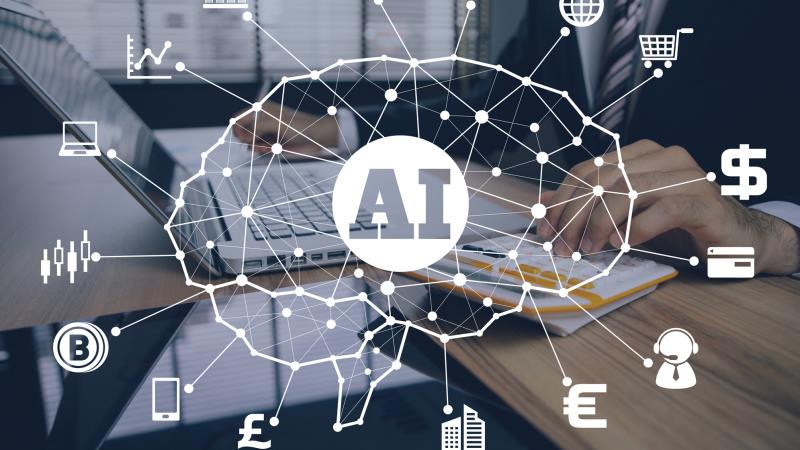Building Voice Assistants Made Easy: OpenAI's 2024 Announcement

Table of Contents
OpenAI's Simplified API for Voice Assistant Development
OpenAI's new API significantly streamlines the complex process of building voice assistants, reducing development time and resource requirements dramatically. This means less time spent on intricate coding and more time focusing on the unique features that will set your voice assistant apart. The key improvements include:
-
Streamlined integration with existing platforms: Seamlessly integrate your voice assistant with popular platforms and services, minimizing compatibility issues and accelerating deployment. This allows for faster integration with smart home devices, mobile applications, and web services.
-
Pre-built models for common voice assistant functionalities: Access pre-trained models for essential tasks like speech-to-text, text-to-speech, and intent recognition. This eliminates the need to build these core functionalities from scratch, saving valuable time and resources. The OpenAI API provides a robust selection of these pre-built models, optimized for performance and accuracy.
-
Easy-to-use documentation and tutorials: Comprehensive documentation and clear tutorials guide developers through the entire process, making it accessible even for those with limited experience in AI development. This removes the learning curve often associated with building complex AI systems.
-
Reduced coding requirements, allowing for quicker prototyping and iteration: The API significantly reduces the amount of code required, enabling faster prototyping and iterative development. This allows for quicker testing and refinement of your voice assistant's capabilities.
-
Cost-effective solutions compared to building from scratch: Building a voice assistant from scratch can be incredibly expensive. OpenAI's API offers a cost-effective alternative, making voice assistant development accessible to a wider range of developers and businesses. This significantly lowers the barrier to entry for this exciting field.
Enhanced Natural Language Processing (NLP) Capabilities
OpenAI's advancements in Natural Language Processing (NLP) are key to creating truly conversational and intuitive voice assistants. These improvements ensure your voice assistant understands nuanced language and context with remarkable accuracy. Key enhancements include:
-
Improved accuracy in speech-to-text conversion: Benefit from significantly improved accuracy in converting spoken words into text, reducing errors and improving the overall user experience. This means more reliable and accurate transcriptions of user input.
-
Enhanced ability to handle complex grammar and colloquialisms: The improved NLP capabilities allow your voice assistant to understand complex sentence structures and informal language, making interactions more natural and fluid. This enables more human-like conversational flows.
-
Better context awareness for more natural and human-like conversations: The OpenAI API provides enhanced context awareness, enabling your voice assistant to maintain context throughout a conversation, leading to a more engaging and natural interaction. This dramatically improves the conversational flow.
-
Advanced intent recognition for more accurate task completion: Accurately identify user intent, even with ambiguous or complex requests. This ensures your voice assistant correctly interprets user commands and completes tasks effectively. This is crucial for effective task completion.
-
Support for multiple languages and accents: Reach a global audience by building voice assistants that support multiple languages and accents. This broadens the potential reach and market for your voice assistant.
Pre-trained Models and Customizable Templates for Faster Development
OpenAI provides a treasure trove of resources to accelerate your development process, including pre-trained models and customizable templates. This significantly reduces the time and effort required to build a functional voice assistant.
-
Access to pre-trained models optimized for specific voice assistant applications: Leverage pre-trained models designed for various applications, such as smart home control, customer service, or entertainment. This provides a solid foundation for building upon.
-
Customizable templates to quickly build and deploy basic voice assistants: Utilize customizable templates as a starting point to build and deploy basic voice assistants quickly. These templates handle the core functionalities, allowing you to focus on unique features.
-
Reduced development time and effort: Significantly reduce development time and effort by using pre-built components and templates. This allows for rapid prototyping and deployment.
-
Ability to focus on unique features and functionality rather than core infrastructure: Devote your time and energy to developing unique features and functionalities that differentiate your voice assistant from the competition.
-
Easier integration with other AI services: Seamlessly integrate your voice assistant with other AI services and platforms to expand its capabilities. This offers increased flexibility and scalability.
OpenAI's Commitment to Ethical and Responsible AI in Voice Assistant Development
OpenAI is deeply committed to developing and deploying AI responsibly. This commitment extends to the tools and resources provided for voice assistant development:
-
Measures to prevent bias in AI models: OpenAI actively works to mitigate bias in its AI models, ensuring fairness and inclusivity in voice assistant interactions. This is crucial for creating ethical and unbiased AI systems.
-
Data privacy and security considerations: OpenAI prioritizes data privacy and security, providing developers with the tools and resources to build voice assistants that protect user data. This builds trust and ensures responsible data handling.
-
Transparency in model development and deployment: OpenAI promotes transparency in its model development and deployment processes, fostering trust and accountability. This increases the credibility and trustworthiness of the models.
-
Tools and resources for developers to build ethically responsible voice assistants: OpenAI offers guidance and resources to help developers build voice assistants that adhere to ethical principles and best practices. This facilitates responsible AI development.
-
Guidelines and best practices to mitigate potential risks: OpenAI provides clear guidelines and best practices to help developers mitigate potential risks associated with the development and deployment of voice assistants. This promotes safe and responsible AI.
Conclusion
OpenAI's 2024 announcements represent a paradigm shift in the accessibility and ease of building voice assistants. The simplified APIs, enhanced NLP capabilities, and readily available resources empower developers to create innovative and user-friendly voice experiences without requiring extensive expertise. By leveraging these advancements, developers can unlock the potential of voice technology and build the next generation of voice assistants. Start building your own voice assistant today using OpenAI's powerful tools and resources! Learn more about building voice assistants with OpenAI's new offerings and embark on your journey to creating the next big thing in conversational AI.

Featured Posts
-
 Strengthening Regional Security China Indonesia Security Dialogue
Apr 22, 2025
Strengthening Regional Security China Indonesia Security Dialogue
Apr 22, 2025 -
 Fsu Security Incident Student Safety Fears Persist Despite Quick Police Intervention
Apr 22, 2025
Fsu Security Incident Student Safety Fears Persist Despite Quick Police Intervention
Apr 22, 2025 -
 Anchor Brewing Company To Shutter A Legacy Ends
Apr 22, 2025
Anchor Brewing Company To Shutter A Legacy Ends
Apr 22, 2025 -
 Blockchain Analytics Leader Chainalysis Integrates Ai Startup Alterya
Apr 22, 2025
Blockchain Analytics Leader Chainalysis Integrates Ai Startup Alterya
Apr 22, 2025 -
 Analyzing The Effects Of Trumps Trade Policies On Americas Global Financial Standing
Apr 22, 2025
Analyzing The Effects Of Trumps Trade Policies On Americas Global Financial Standing
Apr 22, 2025
